
Olalekan Adigun
By OLALEKAN ADIGUN
Since 2020, Africa has witnessed a resurgence of military interventions, with at least 16 coup attempts recorded across the continent. The most recent episodes in Guinea-Bissau and Madagascar reinforce a troubling reality: the era of coups in Africa is far from over. Contrary to widespread belief that such military overthrows are relics of the past, these numbers paint a starkly different picture.
Nigeria, Africa’s most populous democracy, has not been spared from these anxieties. In recent months, rumours of a coup attempt have circulated widely, further heightening national tension. Earlier this month, authorities reportedly uncovered an alleged coup plot involving Nigerian soldiers first arrested in September, with more than 30 suspects now set to face trial.
According to security sources, the accused officers allegedly planned a violent takeover in which top government officials were targeted for assassination. A special panel tasked with probing the attempted coup has completed a preliminary report, which is expected to be presented to President Bola Tinubu. The findings could be pivotal in unravelling what appears to be one of the most serious threats to Nigeria’s democratic stability in recent years.
Among those reportedly implicated is former Bayelsa State governor and ex-minister of petroleum resources, Timipre Sylva. Although Sylva confirmed that his home was raided by soldiers, he has vehemently denied any involvement in a coup plot. His mention in the investigation has, however, sparked intense political debate and raised questions about the broader network behind the alleged plan.
In response to both internal and external security concerns, President Tinubu executed a sweeping shake-up of the country’s top military command. He fired three service chiefs—Christopher Musa, Chief of Defence Staff; Emmanuel Ogalla, Chief of Naval Staff; and Hassan Abubakar, Chief of Air Staff. Their replacements include Olufemi Oluyede, former Chief of Army Staff, who now takes over as Chief of Defence Staff. Shaibu, I. Abbas, and S.K. Aneke have been named as the new heads of the army, air force, and navy respectively.
The decision comes against the backdrop of persistent insecurity in the country’s northern regions and multiple emerging threats that continue to stretch Nigeria’s defence architecture. Yet beyond the structural issues, analysts warn that deeper political and social fractures may be laying the groundwork for destabilisation.
A growing international narrative of “Christian genocide” in Nigeria—heavily pushed by certain foreign actors—has added another layer of complexity. Many observers believe that the United States’ involvement in amplifying this narrative is no coincidence, especially considering the geopolitical interests at play. Such campaigns risk inflaming tensions and undermining Nigeria’s already fragile unity.
At the heart of Nigeria’s current vulnerability is a worrying erosion of faith in electoral democracy. Political actors who have repeatedly lost elections appear increasingly disillusioned with the democratic process, and some have been accused of aligning with forces seeking extra-constitutional routes back to power. This widening distrust threatens to weaken the democratic fabric and embolden anti-democratic elements.
Nigeria must confront these warning signs with urgency and clarity. The combination of political discontent, insecurity, foreign interference, and widening socio-economic grievances presents a perfect storm that could make the country susceptible to coup attempts—just as seen in many other African nations.
The evidence is all around: Nigeria cannot afford to ignore the risk. To safeguard its democracy, the government must strengthen institutions, restore confidence in the electoral system, improve intelligence coordination, and address the socio-economic pressures that fuel instability. In a region where coups are becoming alarmingly frequent, complacency is no longer an option.
•Olalekan Adigun is a researcher and journalist based in Abuja. He can be reached on X (Twitter) via @MrLekanAdigun or email at adgorwell@gmail.com

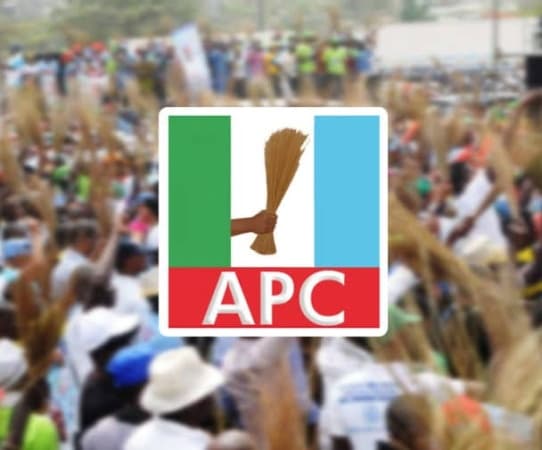




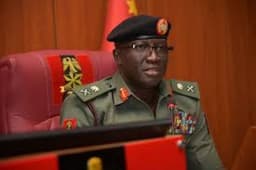
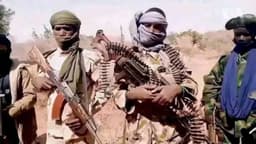
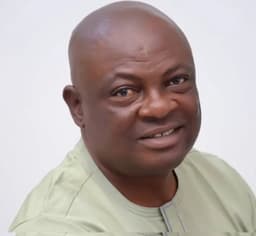


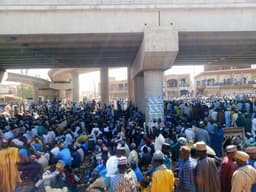










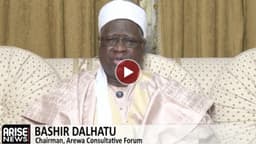
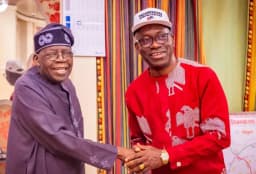
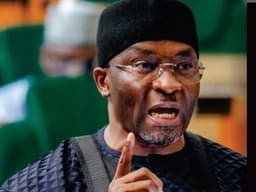


NEWS EXPRESS is Nigeria’s leading online newspaper. Published by Africa’s international award-winning journalist, Mr. Isaac Umunna, NEWS EXPRESS is Nigeria’s first truly professional online daily newspaper. It is published from Lagos, Nigeria’s economic and media hub, and has a provision for occasional special print editions. Thanks to our vast network of sources and dedicated team of professional journalists and contributors spread across Nigeria and overseas, NEWS EXPRESS has become synonymous with newsbreaks and exclusive stories from around the world.